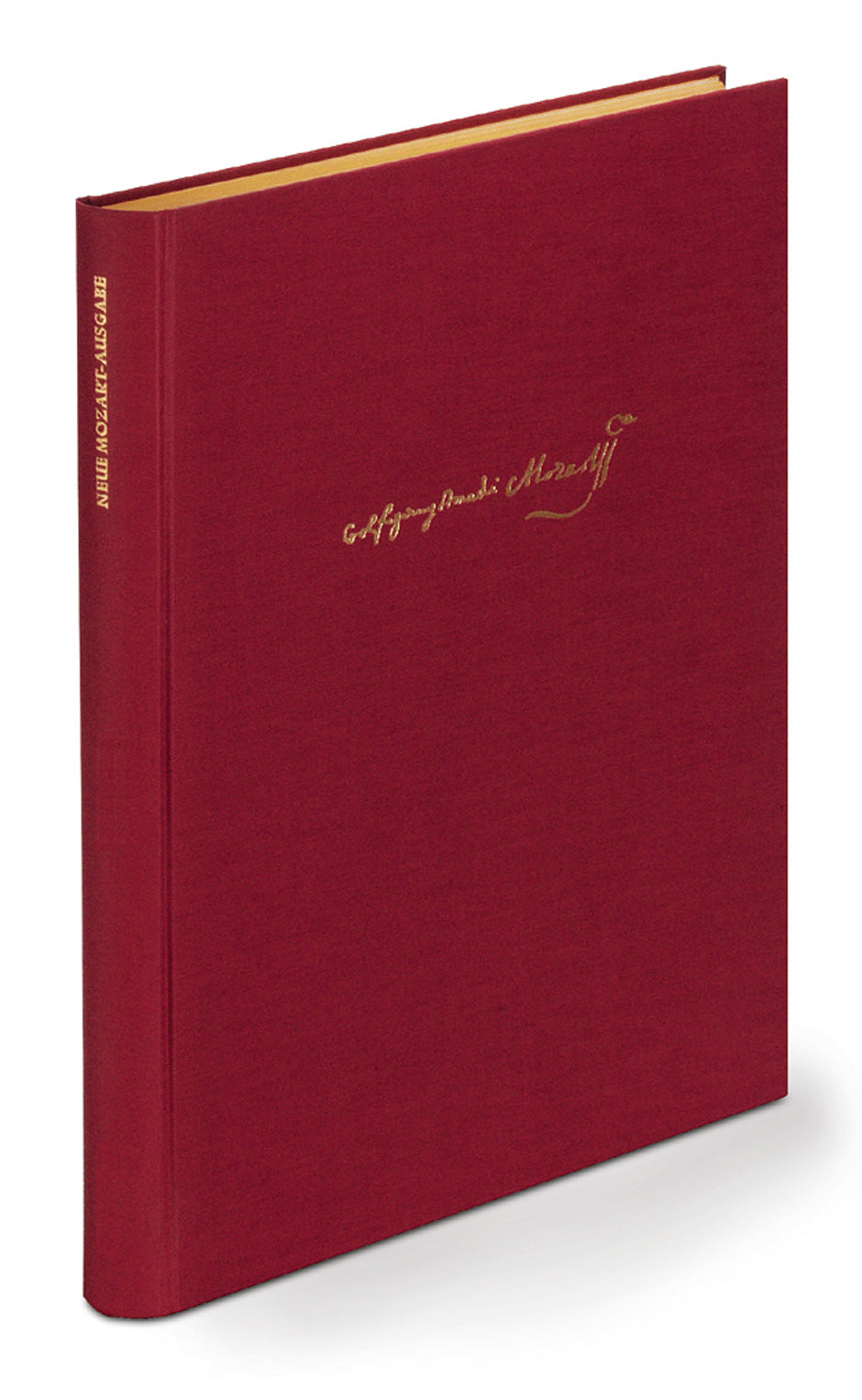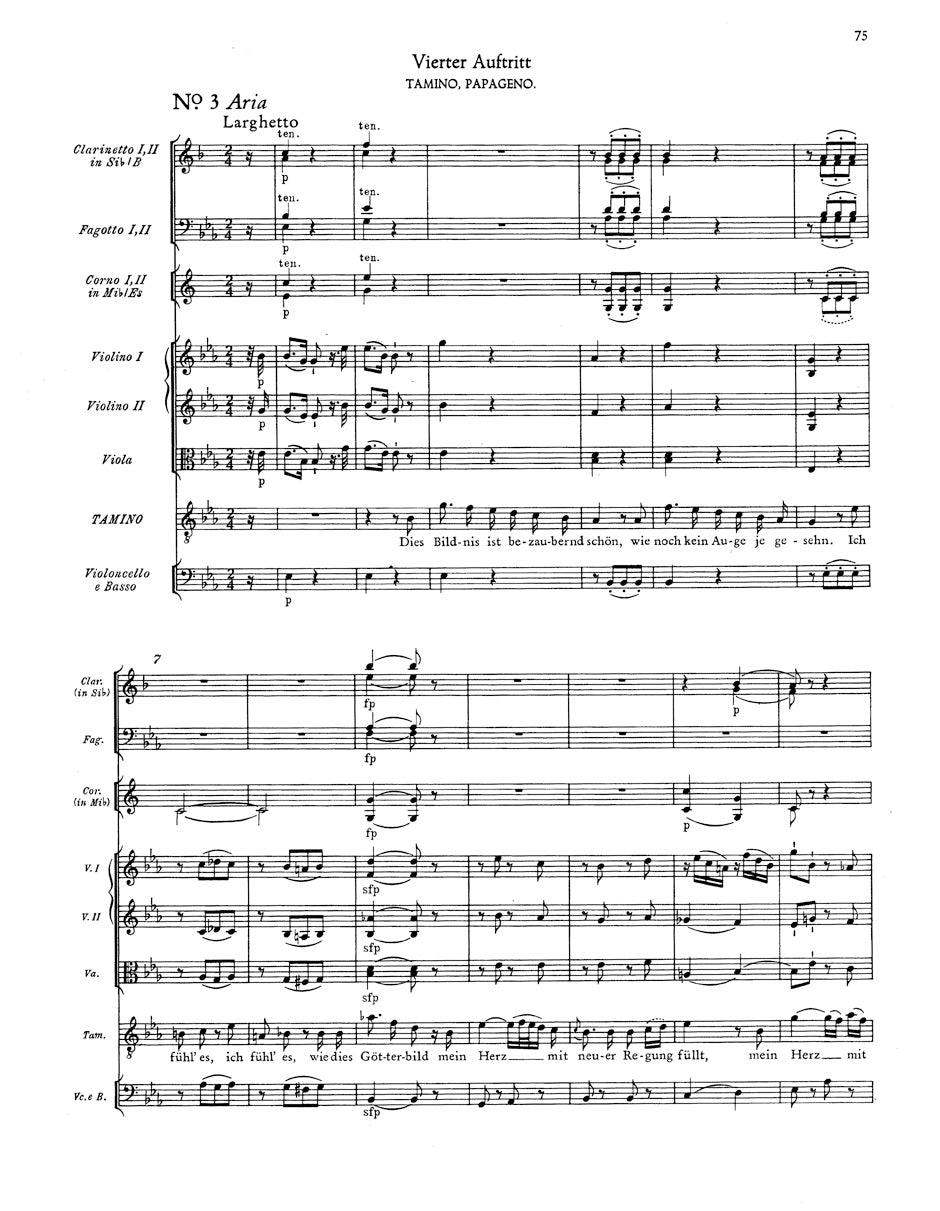

BARENREITER - 345062
Mozart The Magic Flute K. 620 -German opera in two acts- Full Score
Composer: Wolfgang Amadeus Mozart
Publisher: Bärenreiter
Format: Full Score
Binding: Linen
Dimensions: 13 in x 10.4 in
Pages: 379
Mozart The Magic Flute K. 620 -German opera in two acts- Full Score
Juilliard Store
144 West 66th Street
New York NY 10023
United States
Choose options
Mozart The Magic Flute K. 620 -German opera in two acts- Full Score
Juilliard Store
144 West 66th Street
New York NY 10023
United States
Mozart The Magic Flute K. 620 -German opera in two acts- Full Score
Juilliard Store
144 West 66th Street
New York NY 10023
United States
Editor: Gruber, Gernot / Orel, Alfred / Moehn, Heinz
Orchestral scoring : 6SSolo/3Knabenvoicemmen/4TSolo/5BSolo/4speaker/Mixed choir/Fl-Picc/2Fl/2Ob/2clarinet/2BaHn/2bassoon/2Hn/2Trp/3trombone/timpani/Glsp/Str
Product format: complete edition, score, Urtext edition
Binding: Linen
Pages / Format: XXVII, 379 - 33,2 x 26,3 cm
The Magic Flute remains Mozart's most popular opera worldwide to this day. Schikaneder’s Freihaustheater auf der Wieden was a theatre in the suburbs of Vienna . It was a kind of people’s theatre with a corresponding repertoire and its attraction for the public was due not least to the use of spectacular stage effects. The concept ‘machine-comedy’ refers to the theatrical genre to which “The Magic Flute” owes its origins, and to which the work originally belonged. The premiere was given on 30 September 1791, conducted by Mozart.
With this new edition, Bärenreiter has now published vocal scores to all Mozart’s stage works in revised or new editions. These editions offer a historically grounded working basis and will be decisive for Mozart reception for the forthcoming decades.
- Vocal score based on the Urtext of the “New Mozart Edition”
- Incorporates latest scholarly findings from the Critical Commentary of 2006
- Clear and legible music layout, easy-to-play piano reduction
- Extensive foreword in two languages (Ger/Eng) by Dietrich Berke with notes on the work and performance practice
